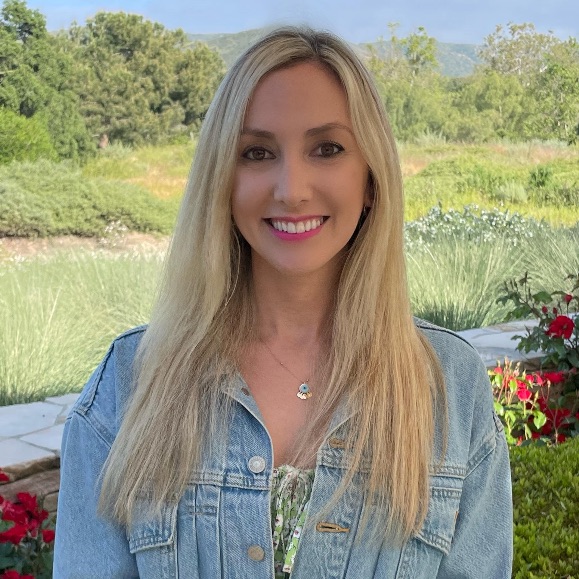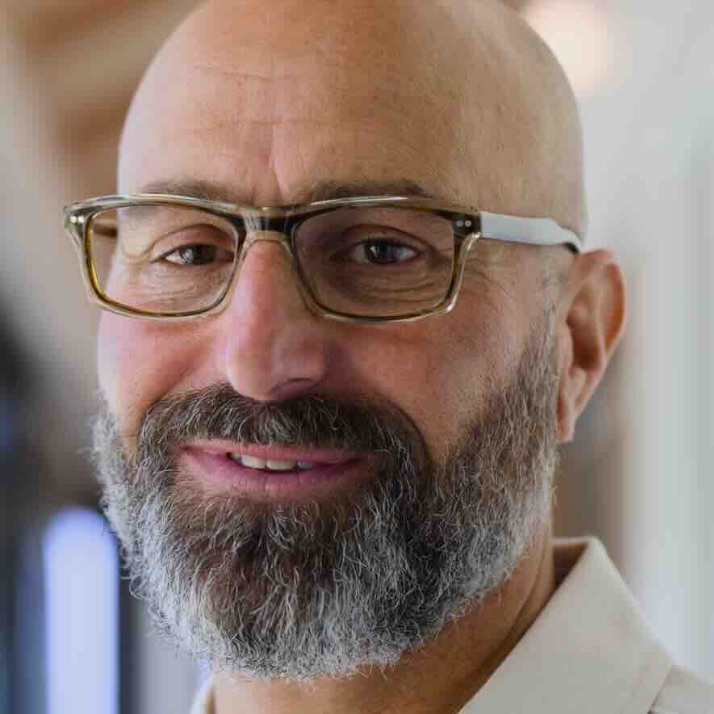Exploring Treatment Choices for Obsessive-Compulsive Disorder (OCD) in San Jose
Obsessive-Compulsive Disorder (OCD) care in San Jose includes in-person therapy, teletherapy, and both individual and group options, often centered on approaches like Exposure and Response Prevention (ERP) and CBT. If you live near Downtown, Willow Glen, or North San Jose, in-person sessions may be convenient, especially around hubs like Diridon Station or along VTA Light Rail corridors. Teletherapy can help if you commute on 101, 280, or 87, or split time between campuses in North San Jose and the South Bay. Group formats can add peer support and skills practice, while individual sessions provide tailored pacing and goals.
MiResource makes it easier to find the right fit by letting you filter providers by therapy approach (ERP, CBT, ACT), insurance accepted, and real-time availability, including evening or weekend slots. You can also search for telehealth-only options or in-person care near neighborhoods like Evergreen, Almaden, or the Rose Garden, and along Caltrain or major VTA routes. Filters for language, sliding-scale fees, and experience with co-occurring conditions help match practical needs with clinical expertise. With clear profiles and location details, you can compare options quickly and choose care that fits your schedule and commute.
Local Programs and Community Partners
San Jose offers a supportive network for people living with Obsessive-Compulsive Disorder (OCD), anchored by nonprofits and public programs that meet residents where they are. NAMI Santa Clara County provides education and peer-led groups that help families and individuals build skills and reduce isolation, with gatherings accessible from neighborhoods like Willow Glen and Evergreen. Santa Clara County Behavioral Health Services connects residents to evidence-based care and community classes, and San José State University’s CAPS supports students navigating Obsessive-Compulsive Disorder (OCD) on campus near the Dr. Martin Luther King Jr. Library downtown. Community centers and libraries in areas like Japantown and Alum Rock also host periodic mental health workshops and talks that uplift local voices and encourage connection.
These resources complement MiResource’s therapist directory for Obsessive-Compulsive Disorder (OCD) therapy in San Jose by surrounding clinical care with advocacy, education, and peer support. Regional Bay Area partners linked with national organizations like the International Obsessive-Compulsive Disorder (OCD) Foundation offer virtual and occasional in-person support groups that South Bay residents can easily join, including meetups convened near the Rose Garden and Downtown San Jose. Local hospitals and clinics collaborate on public info sessions about exposure and response prevention, helping people and families understand what effective treatment looks like. Together, these community touchpoints make it easier to find the right therapist on MiResource while staying connected to supportive peers and programs close to home.
Urgent Help for Obsessive-Compulsive Disorder (OCD) in San Jose
If you’re in immediate danger or thinking about harming yourself, call or text 988 for the Suicide & Crisis Lifeline, or contact the Santa Clara County Suicide & Crisis Hotline at 855-278-4204 (24/7). For local behavioral health support and to request the county’s Mobile Crisis Response Team in San Jose, call the Santa Clara County Behavioral Health Services Call Center at 800-704-0900 (TTY 711), available 24/7. If you need in-person care now, go to the nearest emergency department: Santa Clara Valley Medical Center (408-885-5000), Regional Medical Center of San Jose (408-259-5000), Good Samaritan Hospital (408-559-2011), or O’Connor Hospital (408-947-2500). If symptoms are urgent but not life-threatening, you can also use a nearby urgent care or ask the county call center (800-704-0900) for same-day behavioral health urgent care options.
Key Insights Into Obsessive-Compulsive Disorder (OCD)
Obsessive-Compulsive Disorder (OCD) is a mental health condition where unwanted thoughts (obsessions) lead to repetitive behaviors or routines (compulsions) to ease anxiety. Common symptoms include intrusive worries, frequent checking, excessive cleaning, counting, or needing things to feel “just right.” Understanding Obsessive-Compulsive Disorder (OCD) matters in San Jose because it helps reduce stigma, encourages early support, and connects people with effective local resources and care.
Spotting Potential Warning Signs
If you’re in San Jose and worried that you or someone you care about might be experiencing Obsessive-Compulsive Disorder (OCD), you’re not alone. Noticing patterns early can make a big difference, and support is available. Reaching out for help is a strong, hopeful step.
- Persistent, intrusive thoughts or images that feel upsetting and hard to control (often called “obsessions”).
- Feeling driven to repeat certain actions to reduce anxiety or feel “just right,” like checking or cleaning (these are “compulsions”).
- Spending a lot of time each day on these thoughts or rituals, making it hard to focus on work, school, or relationships.
- Intense discomfort with uncertainty and needing repeated reassurance from others to feel okay.
- A strong need for things to be exact, symmetrical, or in a specific order, with distress if they’re not.
- Avoiding places, people, or objects that trigger worries or rituals.
- Feeling ashamed, frustrated, or exhausted by these patterns but finding them hard to stop.
What Contributes to Obsessive-Compulsive Disorder (OCD)
Obsessive-Compulsive Disorder (OCD) is a real health condition that can arise from several factors, and it’s not your fault. Many people in San Jose live with Obsessive-Compulsive Disorder (OCD), and support is available. Remember, having Obsessive-Compulsive Disorder (OCD) is not a personal weakness—it’s a treatable condition. You deserve care and understanding.
- Biological: Family history of Obsessive-Compulsive Disorder (OCD) or anxiety; differences in brain circuits involved in habits and threat detection; brain chemistry imbalances (like serotonin).
- Psychological: High anxiety or stress sensitivity; perfectionism or strong need for control; past trauma or difficult experiences.
- Environmental: Major life changes or ongoing stress (school, work, relationships); illness or lack of sleep; learned patterns from family or culture.
How Obsessive-Compulsive Disorder (OCD) Shapes Daily Life
Intrusive thoughts and compulsions can disrupt everyday routines in San Jose—whether you’re commuting on 101, juggling a tech job, or caring for family. You might find yourself running late from repeated checking or avoiding places you love because of contamination fears. These patterns can feel overwhelming, but effective care helps you reclaim time, confidence, and peace of mind. Reaching out is a strong first step toward more ease in your day.
- Work and productivity
- School and learning
- Family life and home responsibilities
- Relationships and social connections
- Physical health and energy
- Mood and stress levels
- Sleep and rest
Effective Treatments for Obsessive-Compulsive Disorder (OCD)
Finding effective care for Obsessive-Compulsive Disorder (OCD) in San Jose is possible, and many people improve with the right support. Proven, evidence-based treatments can reduce intrusive thoughts and compulsions and help you reclaim daily life. Explore these options and reach out—help is available and recovery is real.
- Exposure and Response Prevention (ERP): The gold-standard therapy that helps you face triggers gradually while resisting compulsions, reducing anxiety over time.
- Cognitive Behavioral Therapy (CBT) for Obsessive-Compulsive Disorder (OCD): Teaches skills to challenge obsessive beliefs and break the cycle of obsessions and rituals; often paired with ERP.
- SSRIs (medication): Selective serotonin reuptake inhibitors like fluoxetine, sertraline, or fluvoxamine can lessen Obsessive-Compulsive Disorder (OCD) symptoms; dosing may be higher and longer-term than for depression.
- Acceptance and Commitment Therapy (ACT): Builds psychological flexibility and values-based actions while reducing the impact of intrusive thoughts.
- Deep Transcranial Magnetic Stimulation (dTMS): An FDA-cleared, noninvasive brain stimulation option for Obsessive-Compulsive Disorder (OCD), often used when therapy and medications aren’t enough.
Quick Answers for Obsessive-Compulsive Disorder (OCD) Therapy in San Jose
1. Can Obsessive-Compulsive Disorder (OCD) happen to anyone?
Yes—Obsessive-Compulsive Disorder (OCD) can affect people of any age, gender, or background, including here in San Jose. You’re not alone, and experiencing Obsessive-Compulsive Disorder (OCD) isn’t a personal failing. While anyone can develop Obsessive-Compulsive Disorder (OCD), factors like family history, stressful life events, and co‑occurring anxiety or depression can increase risk. Support and effective treatments are available to help you feel better.
2. Is Obsessive-Compulsive Disorder (OCD) just stress or something more serious?
Everyday stress comes and goes, but Obsessive-Compulsive Disorder (OCD) involves persistent, intrusive thoughts and repetitive behaviors that feel hard to control. If worries or rituals are taking up a lot of time, causing distress, or interfering with school, work, relationships, or sleep, it may be more than temporary stress. Obsessive-Compulsive Disorder (OCD) is a real, treatable condition, and many people improve with evidence-based care like ERP (a form of CBT) and, when appropriate, medication. In San Jose, licensed clinicians can help you get effective support and relief.
3. What are some misconceptions about Obsessive-Compulsive Disorder (OCD)?
Many people think Obsessive-Compulsive Disorder (OCD) is just about being neat or organized, but it’s a complex condition involving distressing, intrusive thoughts and time-consuming compulsions that can focus on many themes beyond cleanliness. Another myth is that people with Obsessive-Compulsive Disorder (OCD) could “just stop” if they tried harder; in reality, Obsessive-Compulsive Disorder (OCD) is not a choice, and with support and evidence-based treatments like ERP and CBT, people can get better. It’s also untrue that Obsessive-Compulsive Disorder (OCD) is rare or a personality quirk—many San Jose residents live with Obsessive-Compulsive Disorder (OCD), and seeking help is a sign of strength. If you’re struggling, you’re not alone, and effective care is available locally.
4. Can Obsessive-Compulsive Disorder (OCD) improve without treatment?
Obsessive-Compulsive Disorder (OCD) symptoms can sometimes lessen on their own, but lasting change is much more likely with care. Working with an Obsessive-Compulsive Disorder (OCD)-informed therapist in San Jose can significantly improve outcomes, prevent relapse, and help you build practical coping skills that stick. Professional support also makes the process feel safer and more manageable, so you don’t have to do it alone.
5. How do I talk about my Obsessive-Compulsive Disorder (OCD) with family or friends?
Start simple and clear: “I’m getting help for Obsessive-Compulsive Disorder (OCD), and I want to share what that means,” then explain that Obsessive-Compulsive Disorder (OCD) involves intrusive thoughts and compulsions—not preferences or personality quirks. You can share resources like the International Obsessive-Compulsive Disorder (OCD) Foundation and MiResource listings for San Jose to help them understand and find local support. Set boundaries and ask for specific help: “I’d appreciate support by giving me space when I’m doing exposures,” and “Please avoid reassuring me or helping with rituals.” If they’re open, invite them to a session or to read a short guide—remind them you’re not alone and there’s strong Obsessive-Compulsive Disorder (OCD) care in the San Jose community.
6. Who is qualified to diagnose Obsessive-Compulsive Disorder (OCD) in San Jose?
In San Jose, Obsessive-Compulsive Disorder (OCD) can be diagnosed by licensed psychiatrists (MD/DO), clinical psychologists (PhD/PsyD), primary care physicians, psychiatric nurse practitioners, and licensed therapists such as LCSWs, LMFTs, and LPCCs. MiResource only lists vetted, licensed San Jose providers qualified to deliver accurate diagnoses and safe, evidence-based treatment.
7. What usually happens in a first therapy session for Obsessive-Compulsive Disorder (OCD)?
In your first Obsessive-Compulsive Disorder (OCD) therapy session in San Jose, you’ll start with simple introductions and talk about what brings you in. Your therapist will gently ask about your background and personal history to understand your experiences. You’ll discuss current concerns, symptoms, and how Obsessive-Compulsive Disorder (OCD) impacts your daily life. Together, you’ll set clear, manageable goals—often including steps for evidence-based approaches like ERP—so you know what to expect moving forward.













